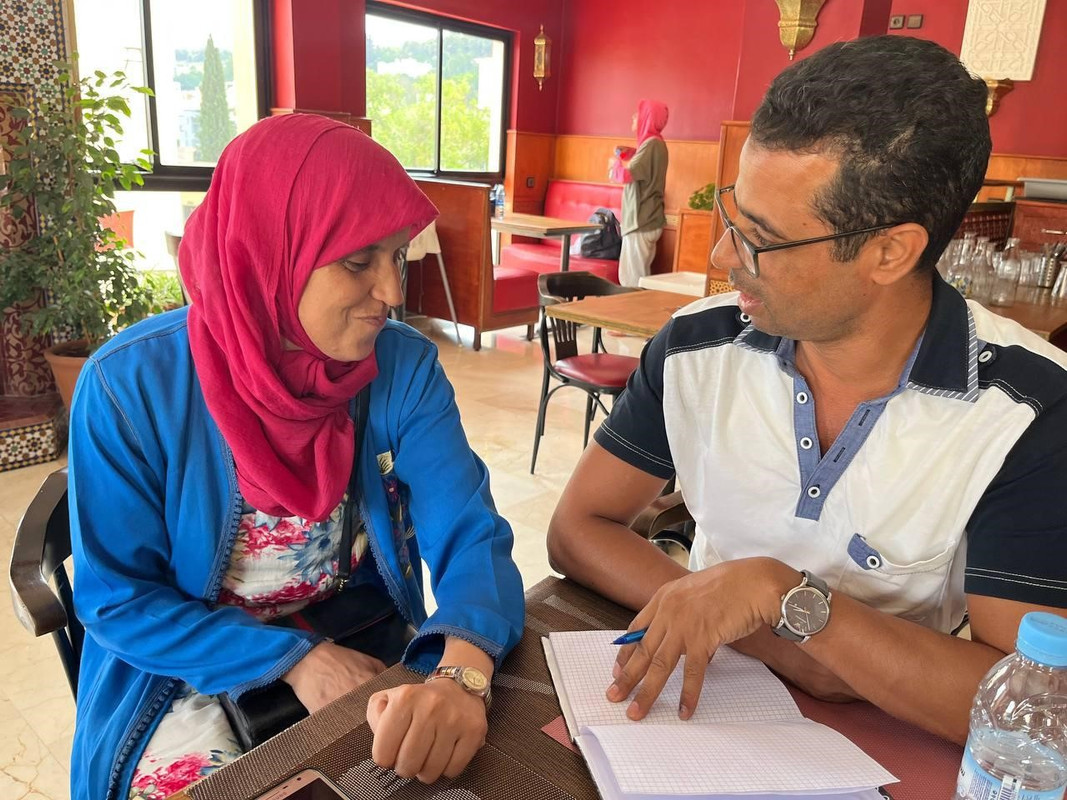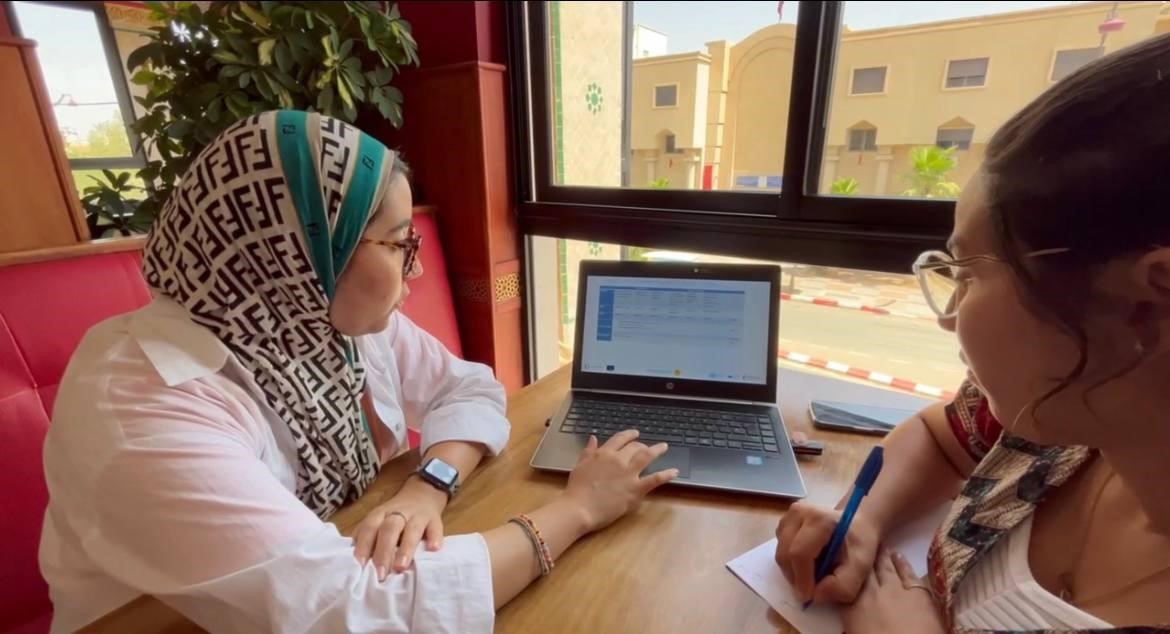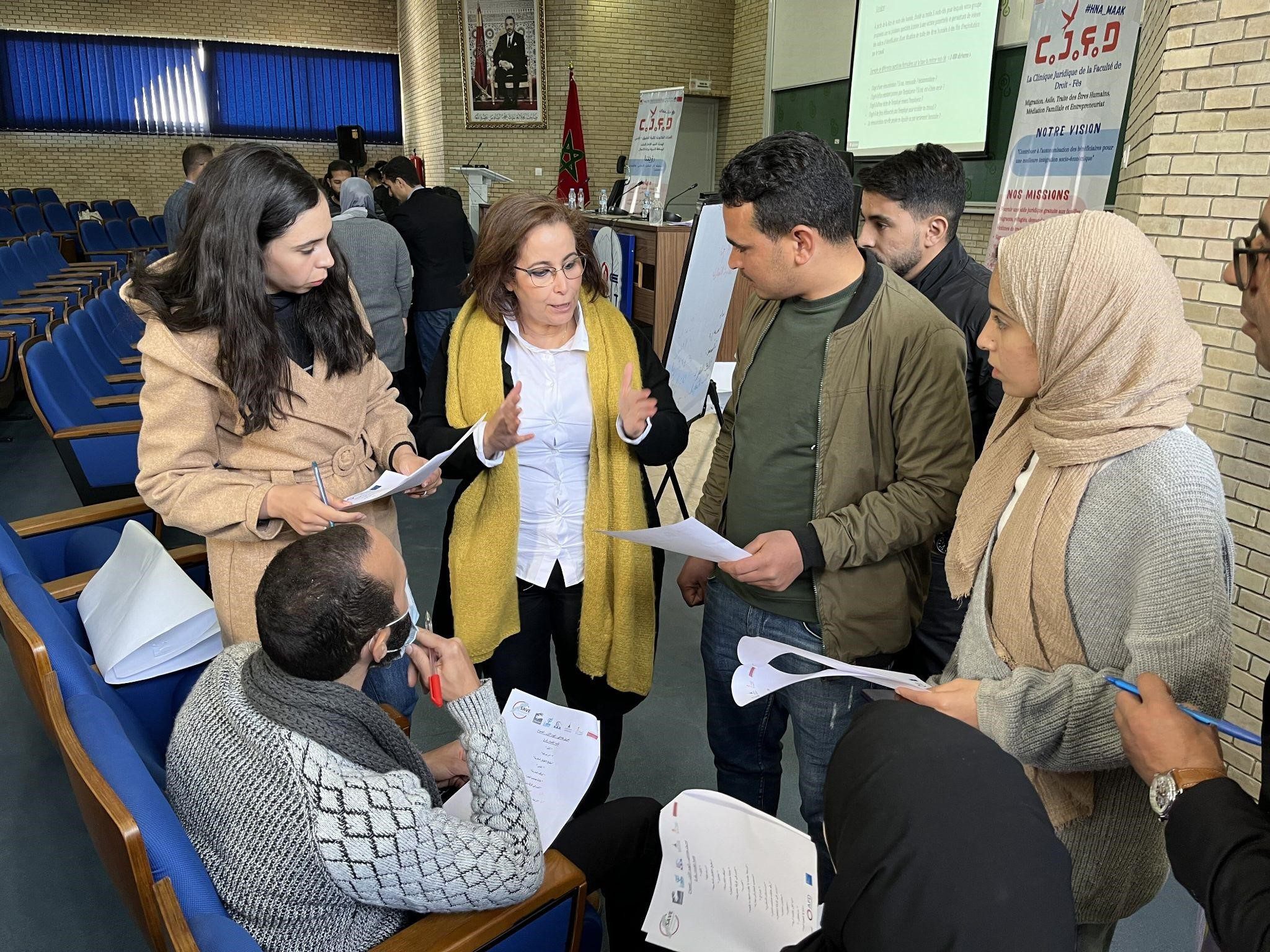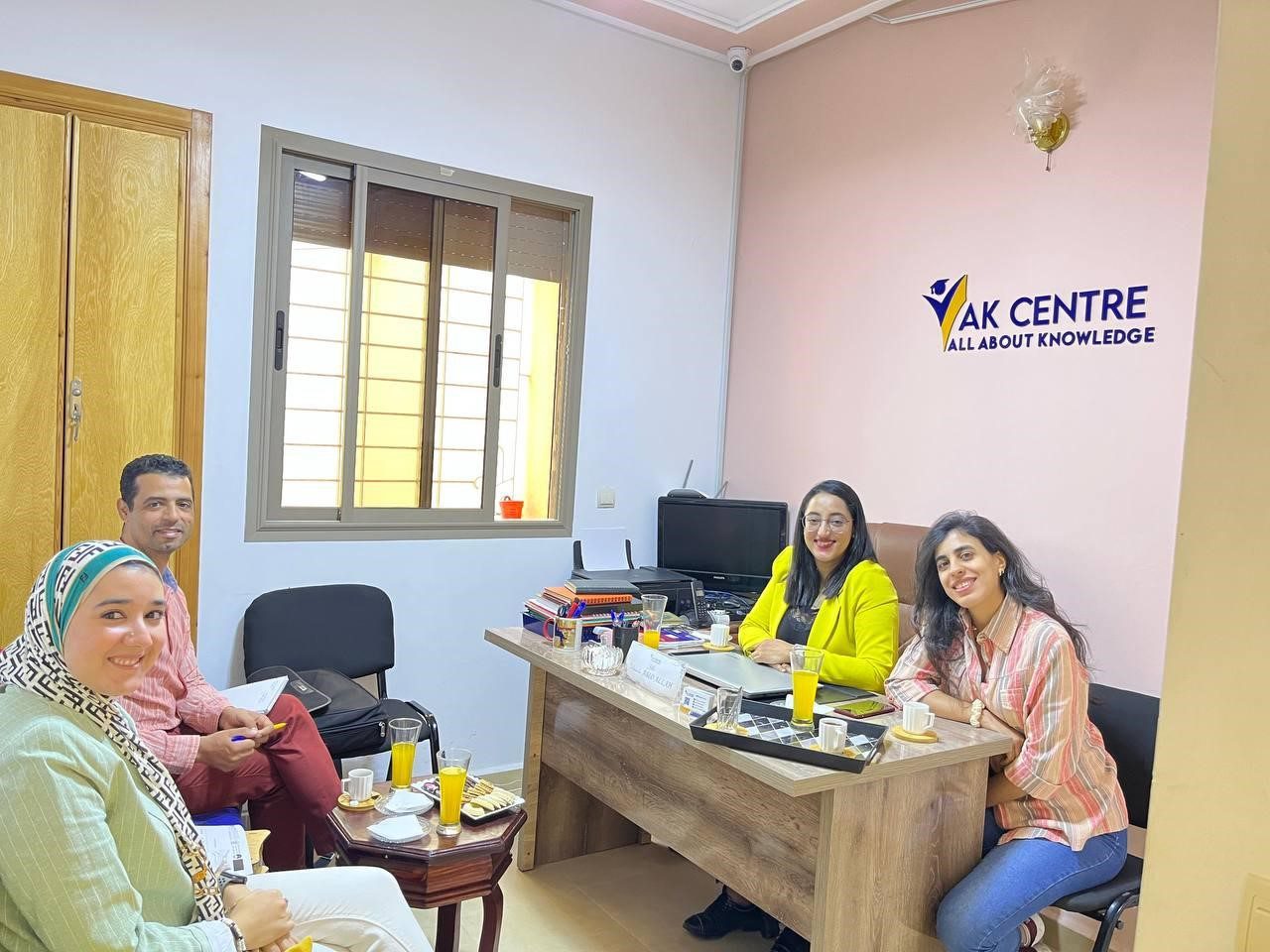By Soufiane Mouhsine, Legal Aid Clinician 2021-2022 and second year master’s student in business law at FSJES Fes

Face to Face Mentorship with beneficiaries: Advisory and Legal Consultancy. Photo: Safae Bouhlala/HAF
Often, project designers are full of ideas, but they find themselves hindered by a lack of means, support, and guidance to pursue and achieve their goals. To enable them to proceed with greater clarity and efficiency, the members of the legal clinic and entrepreneurship program in Fes visited the communities of Sefrou, Azrou and Ifrane for two days each in order to follow-up and support eight program beneficiaries following previous learning and training activities.
The mentorship and accompaniment portion of the program is being implemented in two distinct phases as described below.
- Follow-up and Personalized Accompaniment
Mentors adopted an iterative and co-constructed approach with each participant that is both participatory and individualized in order to meet each project at its own unique state of progress since projects are in their infancy while others are in more advanced stages.
The needs of the project leaders are diverse and eclectic. Some need assistance to build a digital presence, and others aim to provide in-depth legal information to their own constituents and communities. Some aim to expand and broaden their fields of activity and make new partnerships and collaborations, and others seek stability and financial independence.
The accompaniment of the beneficiaries was also structured in two phases:
-
Needs Qualification: Clinicians, acting as mentors, conducted individual, exploratory, and in-depth interviews with each beneficiary to understand his or her needs and gather the information necessary to implement an accompaniment plan. This was an opportunity for each beneficiary to explain challenges they are facing, such as financial difficulties, managerial, or administrative
-
Accompaniment: Immediately after the preliminary interview, the clinicians and mentor provided responses to the questions posed, many of which were related to the legal aspects of project implementation.
2, Training Plan Implementation
Most beneficiaries have expressed their desire to learn and deepen their knowledge on subjects related to their fields of activity (i.e., law 12-112 on cooperatives, digital presence, protection of intellectual property rights) and also in terms of administrative formalities, information, and orientation, advice on establishing a project, management, financing, and other legal and fiscal matters.
These trainings will facilitate the acquisition of contextualized skills in order to increase the performance and profitability of projects.
The series of trainings is expected to be implemented very soon. The clinicians are now in the process of agreeing upon the modules and the duration of the trainings, and planning according to the availability and mobility of the beneficiaries.
Beneficiaries expressed satisfaction with the accompaniment and mentoring missions, noting that the coaching allowed them to clearly define their development ambition and meet an operational need of their organizations.

Face to Face Mentorship with beneficiaries: Advisory and Legal Consultancy. Photo: Safae Bouhlala/HAF
This mentorship and accompaniment toward the realization of income-generating projects is part of a program implemented by the High Atlas Foundation in partnership with the Faculty of Legal, Economic, and Social Sciences at University Sidi Mohamed Ben Abdellah in Fes and with funding from the U.S.-Middle East Partnership Initiative (MEPI) to elevate the status of youth, women, and underrepresented communities by providing pro-bono legal aid and entrepreneurship training as a means to engage civically and economically.
Learn more: https://cliniquejuridiquefes.org/.






